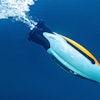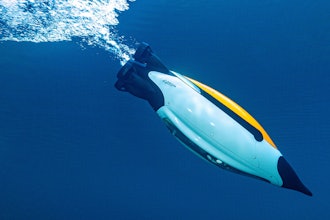ANCHORAGE, Alaska (AP) — Affiliates of Royal Dutch Shell PLC have agreed to pay $1.1 million for violations of air permits by two drill ships operating last year in Arctic waters, the Environmental Protection Agency announced Thursday.
The settlement calls for Shell Gulf of Mexico, Inc. and Shell Offshore, Inc. to pay a $710,000 penalty for violations of the Noble Discoverer in the Chukchi Sea and a $390,000 penalty for violations by the Kulluk in the Beaufort Sea.
Inspections and Shell's own excess emission reports documented numerous air permit violations, the agency said.
The vessels operated for nearly two months in the Arctic Ocean's short open water season, drilling top holes and performing other preliminary work for exploratory drilling. The vessels were not allowed to drill into petroleum-bearing zones because a key piece of oil spill response equipment was not on hand.
The fines are the latest in a series of setbacks for Shell, which included the grounding of the Kulluk in December near Kodiak Island as it was being towed across the Gulf of Alaska for repairs. The vessel was refloated but significantly damaged and was transported to Singapore for repairs. The Noble Discoverer after the drilling season was investigated for 16 safety violations.
Shell chose not to drill in Arctic offshore waters in 2013.
Shell spokesman Curtis Smith said by email that the company accepted stringent emission limits in 2012 that were based on assumptions and modeling.
"Following a season of operations, we now better understand how emissions control equipment actually functions in Arctic conditions," he said.
Alaska villages in the same region as drilling operations were not affected by the violations, he said.
"Despite reported overages in 2012, the EPA did not allege any negative impact from Shell's emissions to local populations, nor did Shell exceed its overall allowable annual emissions for the operating season," he said.
Colin O'Brien, an Earthjustice attorney in Anchorage who unsuccessfully tried to keep Shell from obtaining Clear Air Act permits, said the fines are emblematic of the fiasco that was Shell's 2012 operating season.
"Shell's numerous violations came even after EPA issued special waivers allowing Shell to operate under more lenient requirements than its initial permits," he said by email. "The fines for these violations are a reminder that Shell was unprepared to drill in the Arctic last summer and underscore that the Administration must take a new, hard look at whether Shell is prepared to drill in the Arctic safely and in compliance with environmental safeguards."
Environmental groups bitterly oppose Arctic drilling in a region that supports endangered whales, polar bears, ice seals and walrus. They contend not enough is known about drilling's effects on an ecosystem affected by climate change, with summer sea ice continuing to be lost at a record pace. The groups also say oil companies have not demonstrated the ability to clean up a petroleum spill in ice-choked waters.
The U.S. Geological Survey estimates 26.6 billion barrels of recoverable oil and 130 trillion cubic feet of natural gas exist below Arctic waters. The reservoirs could be linked to shore by underwater pipelines and then overland to the trans-Alaska pipeline.
Shell spent $2.1 billion on petroleum leases in the Chukchi Sea in 2008 and estimates that it has spent $5 billion on Arctic drilling. The company contends that it can drill safely.






















